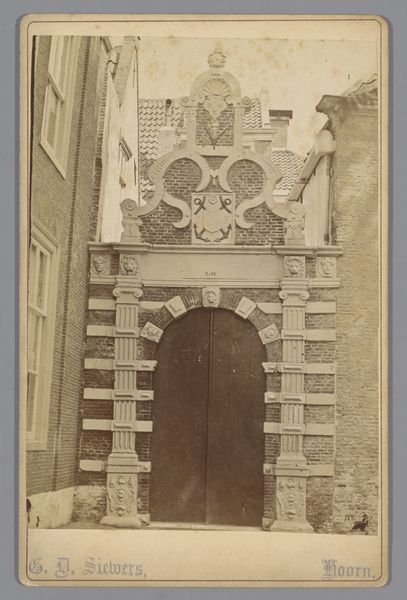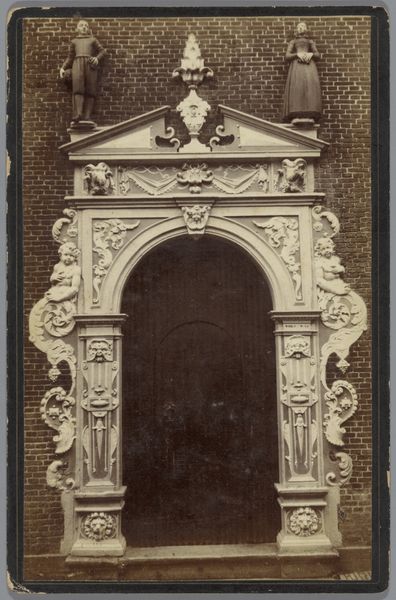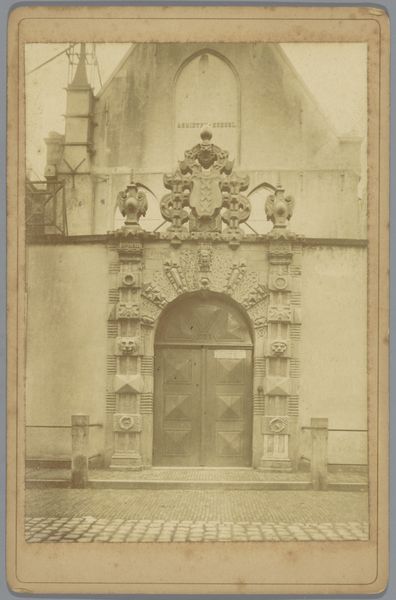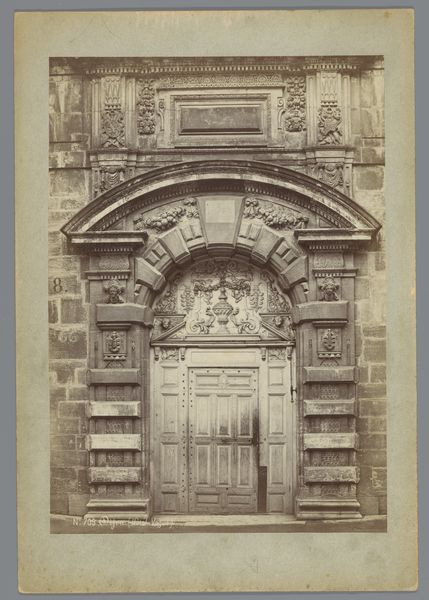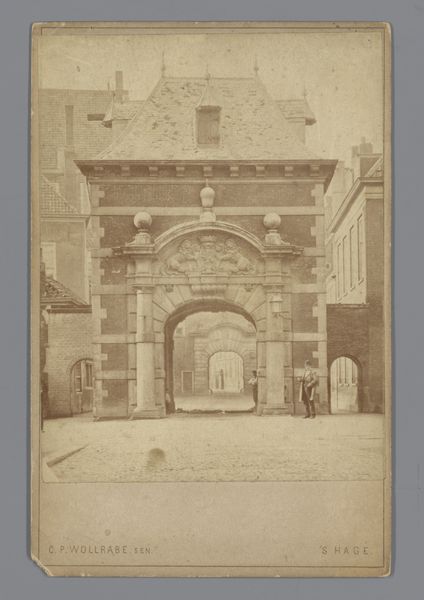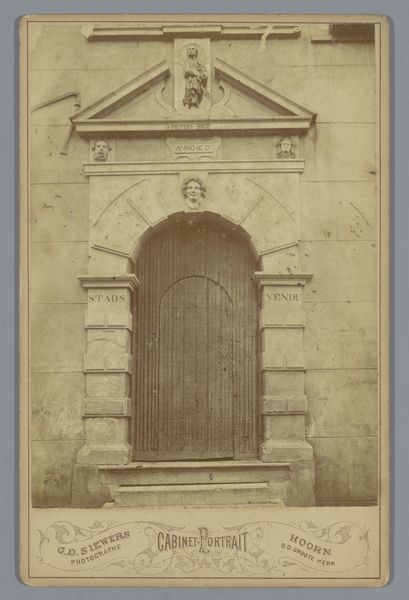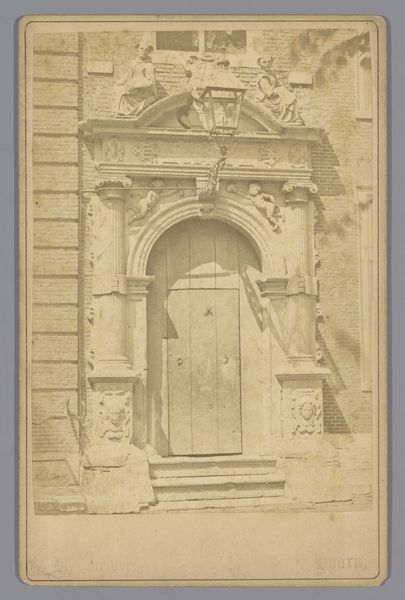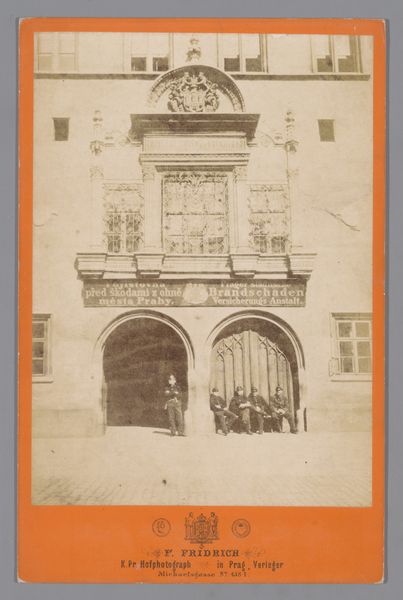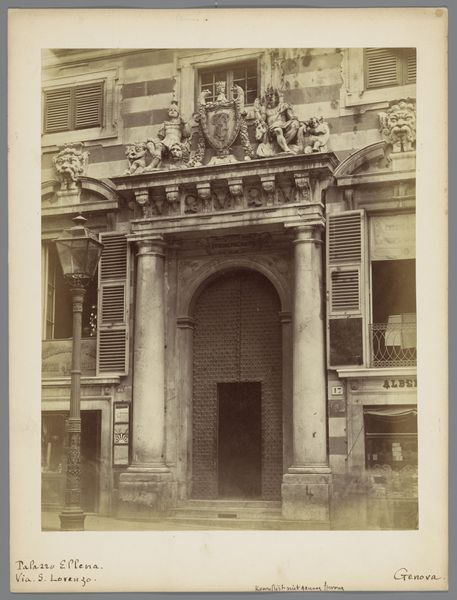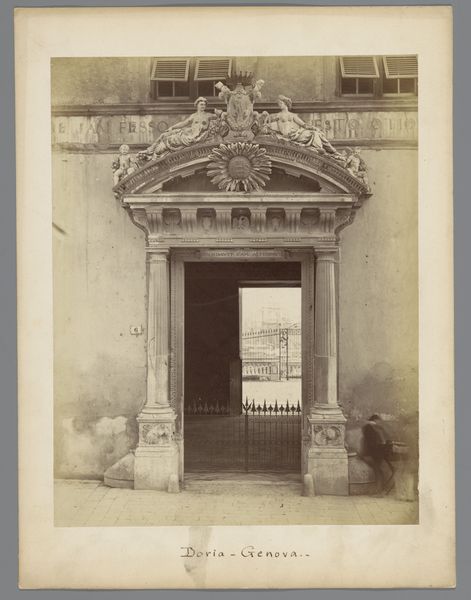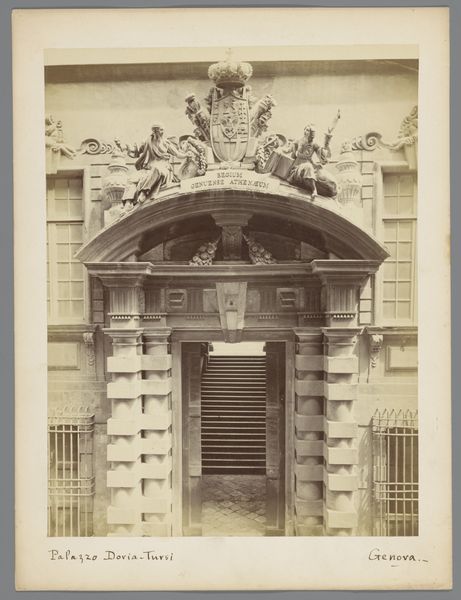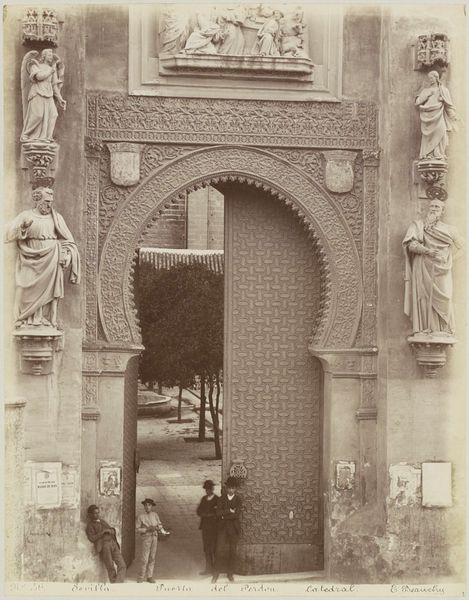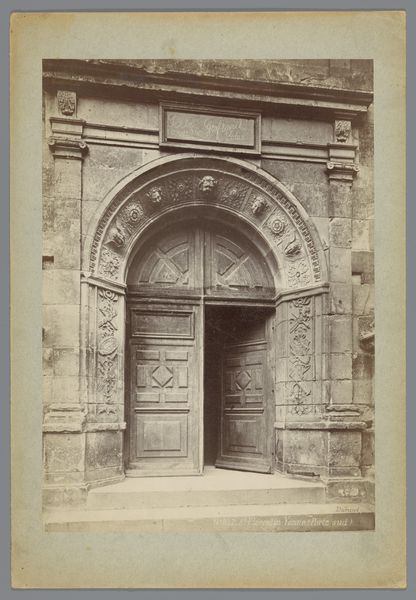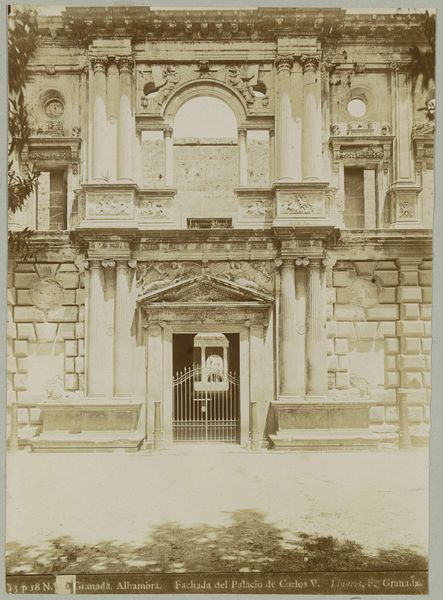
#
aged paper
#
toned paper
#
muted colour palette
#
sculpture
#
unrealistic statue
#
framed image
#
neutral brown palette
#
watercolour illustration
#
watercolor
#
statue
Dimensions: height 167 mm, width 109 mm
Copyright: Rijks Museum: Open Domain
Editor: Here we have Albert Dekema’s "Poort in de Drommedaris in Enkhuizen," created sometime between 1865 and 1896. It has this fantastic sepia tone. What do you make of this stoic monument? Curator: What strikes me is the inscription 'Anno 1540'. It raises interesting questions about historical preservation and the selective memory of nations. Is this structure truly from 1540, or is it a romanticised version, rebuilt perhaps in the face of cultural change or even loss? Editor: That's interesting. I hadn't considered the rebuilding aspect. Curator: Think about it: the Drommedaris was a defense tower and part of the city wall, so it represents power and protection. But what power, and who was it protecting? The architectural embellishments -- those decorative elements and the statue at the top -- hint at civic pride and perhaps even religious or political ideologies of that period. Are these symbols reinforcing established power structures, or offering a challenge? Editor: It seems pretty grand and important... perhaps like an exclusionary fortress, now that you mention the symbolism of power. Curator: Exactly. What would it have meant to be *excluded* from that gate in 1540, or even in 1890 when Dekema captured this image? And whose stories are omitted in this rather formal portrayal? Whose perspectives were considered less important? Editor: So this image isn't just about architecture; it's also a document reflecting social hierarchies and the values of a specific time and place. Thanks, I'll certainly keep this in mind moving forward! Curator: Precisely. Viewing art this way enables us to engage critically with both history and its continued impact on our present.
Comments
No comments
Be the first to comment and join the conversation on the ultimate creative platform.
